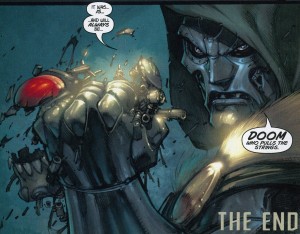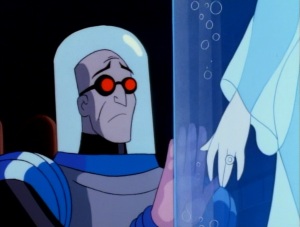Point of view is a heckofa difficult issue for writers, novice and expert.
1st person:
The first project I really threw my weight behind was 1st-person-perspective. And am I glad it was. When writing narration, I didn’t have to worry about inadvertantly adding individualization as long as it was the lead’s color. What do I mean?
In telling the story of Goldilocks, it’s wrong to write,
“And then the dumb b**** just climbs straight into a bear’s bed after eating its food. Geez, what an idiot.”
This fairy tail narrator is adding his own views. It can take away from the pure story (sometimes). However, if the story is told from the Woodsman’s point of view, it makes sense for the narration to sound exasperated.
And yes, I know the Woodsman is from a different story.
3rd Person Limited Omniscience (One Character):
Now you’re outside the head of the main character, but your narrative voice is still influenced by her. Say your lead is named Josephine and she’s a typical american midwestern teenager.
Josephine was so angry she couldn’t help but slam her locker shut. And there was Tara on the other side of the little door, smiling that perfect, s***-eating grin. But she was wearing that gorgeous green empress-cut top Jo loved loved so much.
Did you see how, even though the narrator wasn’t Josephine herself, it colored the prose? For example, all empress-cut tops are ugly, no matter who they’re on. But Josephine likes them, and therefore it’s “gorgeous.”
Also notice that Josephine is “angry,” but Tara is wearing a s***-eating grin. If Tara was the protagonist, it would be written differently.
“Tara wore her friendliest smile and the green top she knew Josephine loved. It might not be enough today, though. Josephine slammed her locker door, and she scowled with her whole body.”
aStatements like “she was angry” can only be written if you’re in that character’s head. Otherwise, they scowl. We can infer their mood from body language.
3rd Person Limited Omniscience (With Multiple Lead Characters):
Ugh. The most popular example of what I’m talking about here is George R. R. Martin. Every chapter begins with a character’s name so we know where we are and who we’re supposed to be paying attention to.
This is pretty common with, say, two characters. I see it all the time in thrillers (1 goodguy, 1 badguy) or romances (1 guy, 1 girl – in most cases) It’s a little harder to write because your voice changes from POV to POV. One character may know more about what’s really going on.
Some mistakes to avoid here: Don’t introduce a second voice halfway through your story. There’s nothing more jarring to a reader than suddenly entering the head of a new character when you’ve attached yourself to another for so long. I remember reading a book where the main character died unexpectedly, leaving us to follow around his protege for the rest of the story. It was meant to be a twist but was just kind of irritating.
Remember the video game Metal Gear Solid 2: Sons of Liberty? After following the beloved character Snake in the prologue, you started a new level with Snake in a mask. Then, BAM! he took off the mask and you spent the rest of the game following around a wannabe Snake named Raiden. Fans were upset.
If you add more characters, you are forced to divest your narration of almost all voice. Like George R. R. Martin’s beloved clusterfuck complex tale of millions of characters generally being miserable assholes complex. If you end one chapter in the voice of a mother holding her dying child and begin another chapter in the head of a torturer, your audience gets whiplash. It can be done, but is for an advanced, talented writer like Mr. Martin.
3rd Person Total Omniscience:
This one may be the hardest. It’s hard for the reader to connect with any one person’s view, and therefore harder to get invested in the story.















